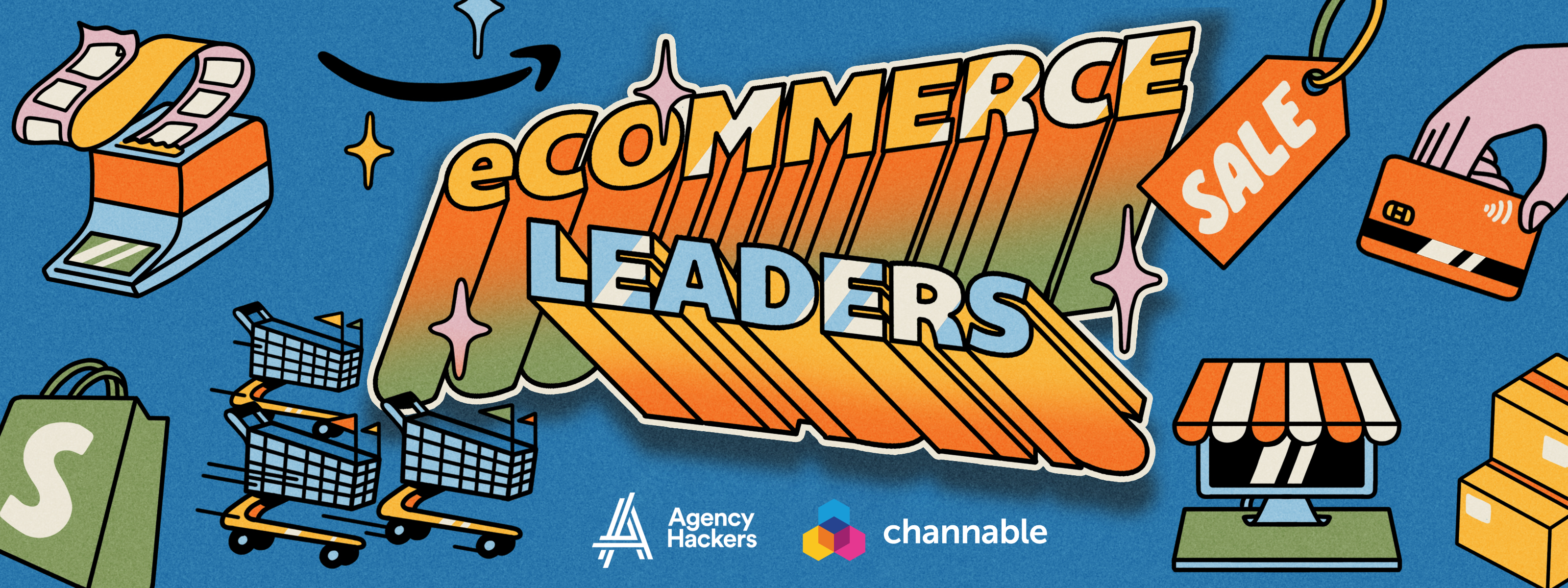Speakers
📢 Here are the current speakers we have for this event. We will also hear from you – the event is all about taking part.
Leveraging TikTok for eCommerce Success
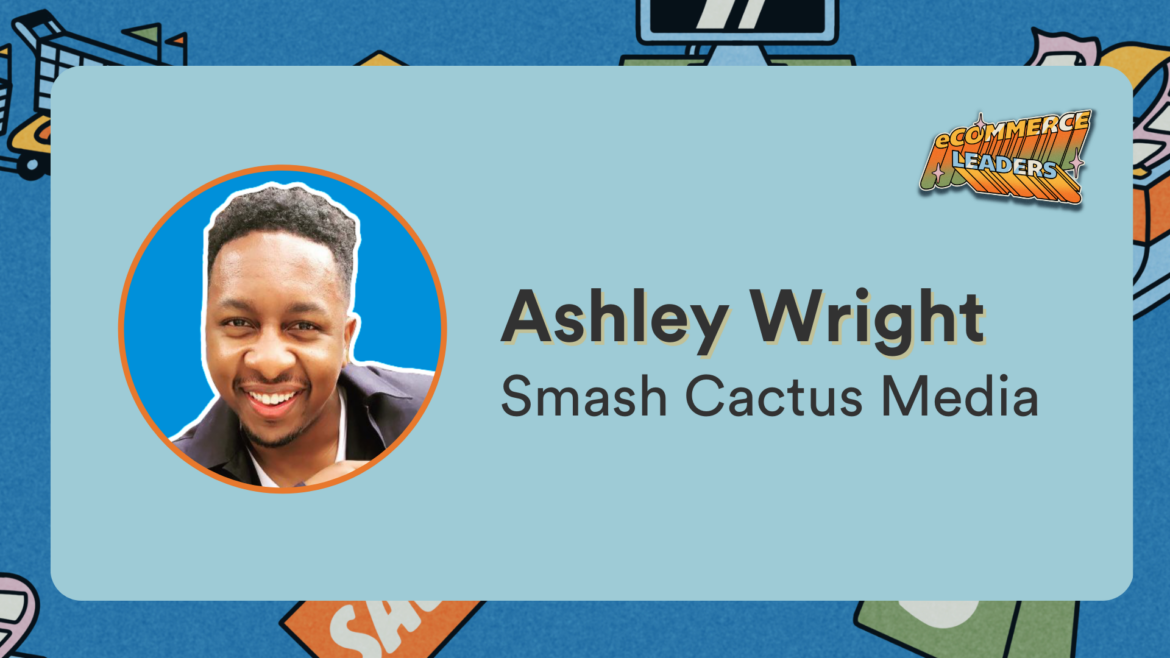
The problem with using AI in your agency is that it makes your copy sound the same – boring, lacklustre, and repetitive.
TikTok is not just a dancing platform anymore. It’s a place where eCommerce can thrive.
That’s what Ashley Wright thinks.
Ashley is the founder of creative ad agency Smash Cactus and TikTok growth agency Social Tale. He’s had an eye on TikTok marketing since IOS 14.5 came out in 2021 – an update that changed data tracking forever.
“I thought, if this is the direction of travel, there needs to be different angles where those touch points are going to be more important,” Ashley says.
“You had instagram, but I found that a lot of brands using that platform were buying a lot of followers. So it looked like they had a big audience, but realistically when they were posting, it wasn’t reaching that many people. At the same time, Instagram was pushing more and more ads into people’s feeds. So brands were only reaching a small fraction of their followers.”
“At the time, I was still at Mediacom, and TikTok was starting to take off. Big brands that we worked with, such as Adidas, were starting to take note. So I thought let’s delve into that realm.”
It’s been a journey to say the least. The first hurdle was convincing clients that this was worth the investment.
“Especially up until last year, there was a definite educational piece with clients. They would say, ‘If I’m spending X amount of money, time and effort, I need to see an ROI from it straightaway’.
“But just because people might not be posting on the platform doesn’t mean they’re not interacting.”
“That’s the thing that they need to understand – there are people utilising TikTok as something to just sit and scroll on, basically to get a dopamine rush.”
Now, it’s a place where brands know they have to be.
“Obviously, with TikTok shop, users can now just shop directly in the platform. So a lot of brands are now saying ‘We need to be on the platform, we need to have another channel where we’re promoting organic content and can see transactional value – if not we’re going to kind of get left behind’.”
“They feel like if they miss that trick, their competitors will get ahead of them. And it’s kind of a dog eat dog world right now.”
At eCommerce leaders, Ashley will be joining us to share his story of niching into TikTok marketing, and the growing impact the platform can have for eCommerce businesses.
We’ll talk about:
- How to get clients on board with tech they don’t understand.
- Common misconceptions about the platform and its audience.
- Some simple tactics to get you started.
If you’re keen to understand how to keep up with trends on TikTok and leverage them in your marketing, this is a session you don’t want to miss.
“How We’re Growing Our Team with an Award-Winning Culture”
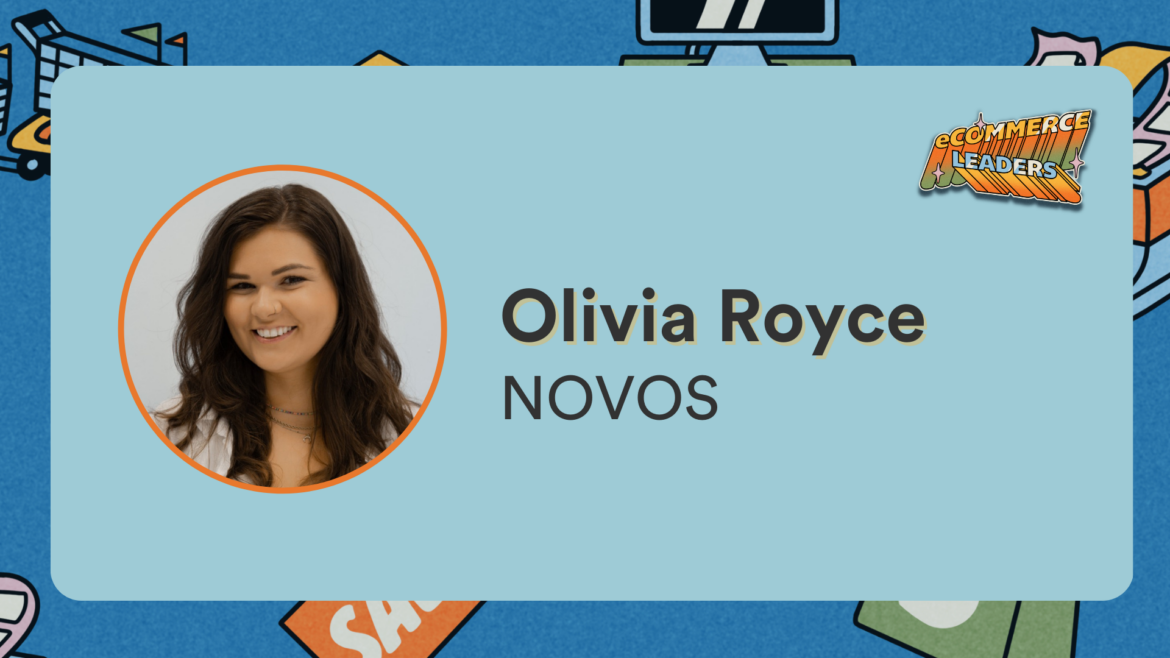
It’s getting harder and harder to find genuinely good talent in eCommerce, PPC and SEO.
There’s an over-saturated job market, increasingly large knowledge gaps from graduates, and every man and his dog has got one eye on their own side hustle.
But if you’re looking to scale, you need top-tier specialists. So how can you attract good talent and convince them to stick with you?
Oliva Royce, operations director at NOVOS, reckons your employer brand is a good place to start.
NOVOS won Campaign’s ‘Best Place to Work’ award last year – as well as ‘Best Place to Work for Women’ – which Olivia cites was largely influenced by their employee-ownership journey.
“Being employee-owned isn’t a brand new concept, right? It’s what you do with it afterwards that’s interesting. You’re essentially creating a democracy of a company, which can steer off into so many different directions,” she says.
“We’ve made decisions over the past couple of years that, if it was just the senior leadership team making those decisions there’d be very different outcomes. Not because they think so differently to each other, but when you’re considering a company as a whole, you have to try and find the middle ground of what will help everybody but also suit the business. That’s quite an interesting one to navigate.”
But they don’t just talk the talk. Oliva has implemented several levels of support over the years to make sure their team is happy and comfortable (and not going anywhere) – from flexible working hours, to complete operational transparency, to client visibility at all times.
“We don’t have account managers at NOVOS. We always want to be an extension of a client team, rather than a person who just takes the work and then distributes that out. So anyone who is implementing strategy is the client contact as well.”
They even go as far as training their team on how to say no to a client.
“It’s about empowering the team to understand from a business perspective what’s smart and what is probably not so smart. Then suddenly, you go from over-servicing a client massively to not over-servicing them at all anymore, because that person is growing confident to be able to push back and say no.”
In this session, Olivia will talk us through how she is keeping her team happy and motivated, juggling an award-winning culture alongside award-winning delivery, and adapting processes in an ever-changing industry.
Breaking the USA
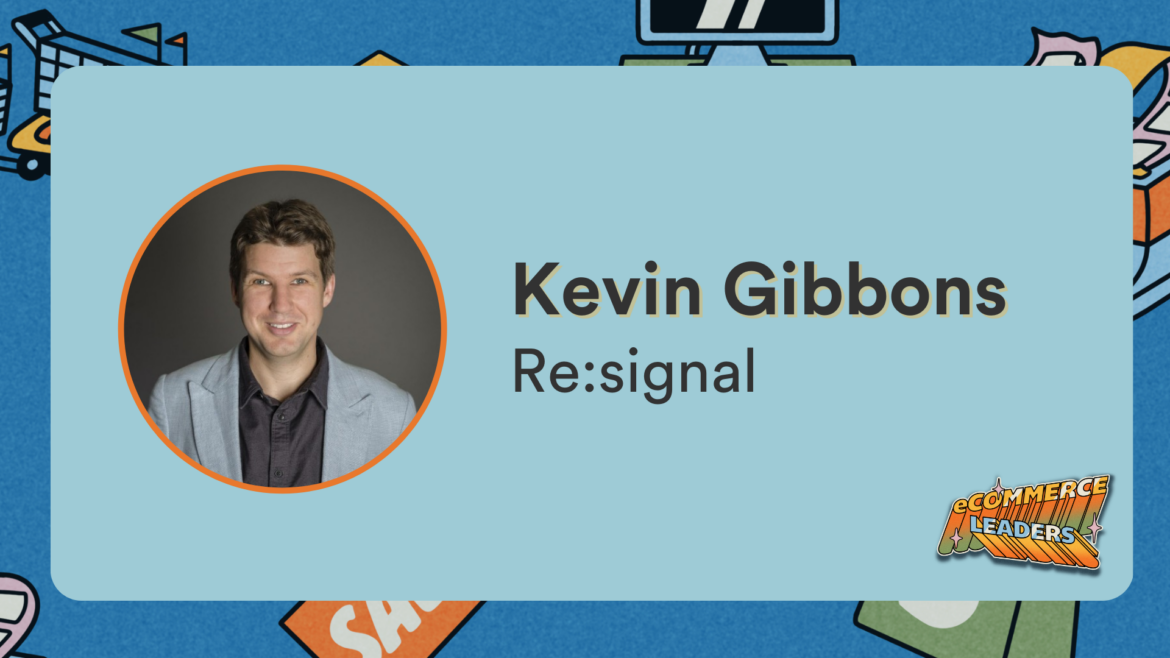
From a distance, the US looks like the dream place to be: a larger pool of clients, bigger tickets, and the possibility of a global influence.
But there’s another reason why you might want to consider setting up shop over there – could UK agencies have a competitive advantage in the US?
That’s what Kevin Gibbons seems to think.
Kevin’s agency Re:signal has always had a decent profile in the States, due to thought leadership and global marketing efforts. But back in 2012, the Re:signal team caught a glimpse of what it’s really like to work in a US agency – and they promptly left.
“A big US agency acquired us to become the UK part of that agency – that was their way to grow globally,” says Kevin. “The short version of that story is that it was an absolute disaster.”
From the outside, the agency looked solid. But from the inside, there were all sorts of issues – particularly amongst partners.
“We were only part of that journey for about 6 months. So I always joke that it was a bit like an MBA on crack. I saw everything not to do, rather than what you should do. Then took that for my own learnings.”
One of Kevin’s key learnings was that the difference in quality between US and UK agencies is huge.
“With regard to the standard of quality of work in the US… I actually think it’s much stronger in the UK,” claims Kevin.
“I’d be much more concerned about a five-way pitch in the UK – certainly in London – than I would be if I was pitching in the US, because I think the quality overall is pretty average.”
Not only does he believe their standards are lower, but they’re also behind the curve in terms of delivering value.
“Some of the work I’ve seen, and some of the pitches we’ve been up against, it feels like they’re charging a lot of money but still aren’t as ROI-focused. They don’t feel that strong in terms of techniques and strategies.”
Fast forward to 2023, and Kevin has recently registered a company in the US.
At eCommerce Leaders, Kevin will give us a candid portrayal of how it’s going. He’ll also be dishing the dirt on how you can grow your business in the States, and the things he wished he’d known the first time around.
If you’re looking to expand your business into the USA, come along to pick up some tips from someone who has been there, done it, and gone back again.
How to Stay Relevant in an Ever-Changing Industry
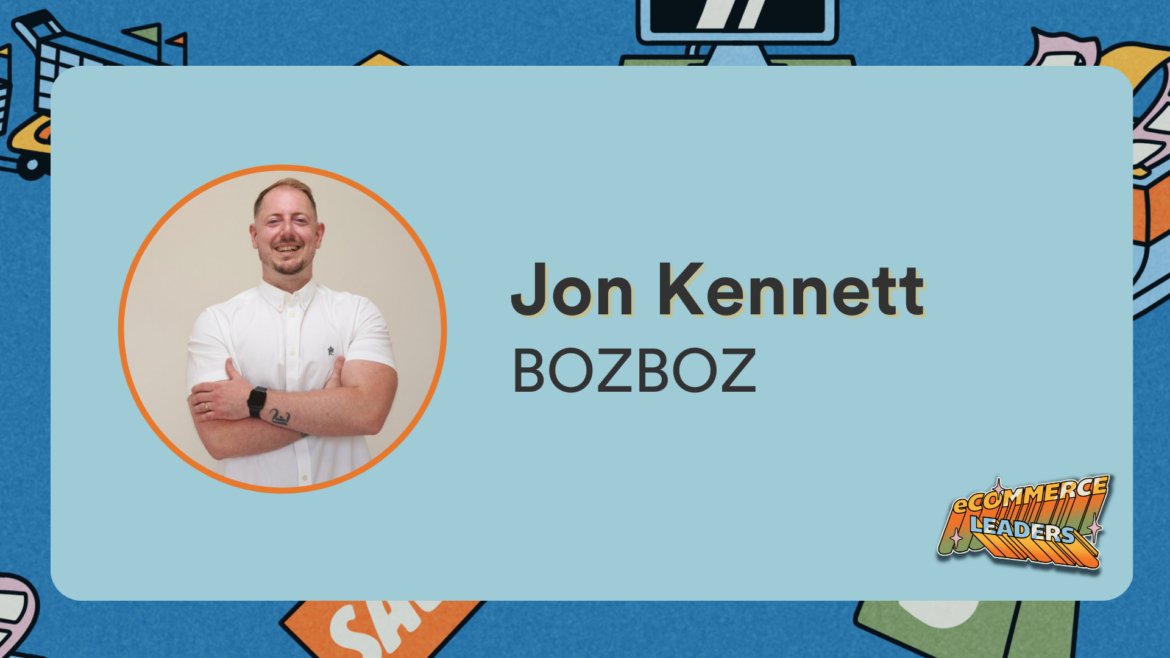
Jon Kennett has spent the last 20 years working in eCommerce. He reckons no other industry has changed in recent years quite like this one.
“When I first started doing PPC ads, it was an untapped stream of business. But everyone seems to be doing the same things now – following the same playbook.”
Back when Jon was still a rookie, there was room to make mistakes here and there. For example, one company he worked for had to buy back its entire client base after a replatforming went haywire.
But now, not so much.
“Finding good clients is hard work – certainly ones that you feel are a good fit. A lot of that comes with trial and error.”
So how is he using his two decades’ worth of expertise to ensure his current agency, Bozboz, stays ahead of the curve?
“A lot of what we do is bespoke development. You can get some great stuff out of the box with platforms like Shopify, but we found that by building custom tools and providing brands with more bespoke functionality, we’ve been able to get some really good clients over the line.”
Understanding your client’s needs can be a great way to upsell your services. Jon’s agency now offers brand strategy consultation for clients who approach them for a Shopify website, but aren’t quite as ready as they think they are.
“You get a lot of people that will come to you with an idea but they don’t really understand the core of their brand themselves,” Jon says.
“They’ll say, ‘I need a website to sell this product I’ve got’. But they’re not sure who their audience is, they’re not sure where they sit in the marketplace, they’ve not done any competitor research or strengths and weaknesses analysis, and they’ve not done any of the brand strategy stuff that underpins what they’re going to do next. So that digital maturity journey is really important to consider.”
At eCommerce Leaders, Jon will give us an overview analysis of how the eCommerce industry has changed over the last twenty years, and how you can stay ahead as the market continues to saturate.
We’ll discuss:
- The evolution of PPC and SEO
- How to adapt to industry changes
- Managing client expectations
- How to understand what your client actually needs, not just what they’re asking for
If you’re looking to diversify your services in 2024, you’ll want to hear what Jon has to say.
